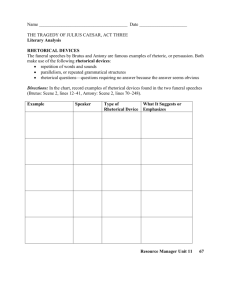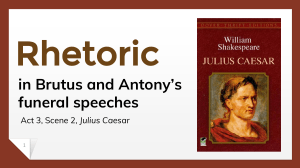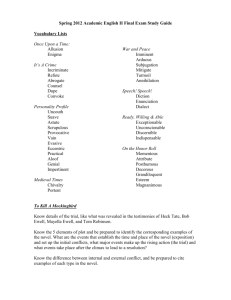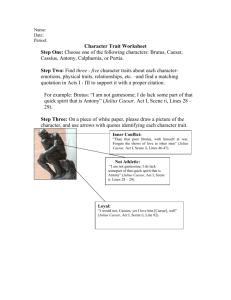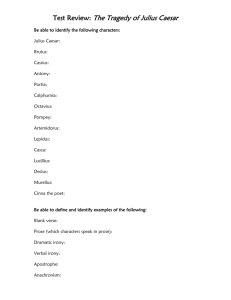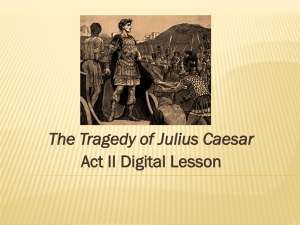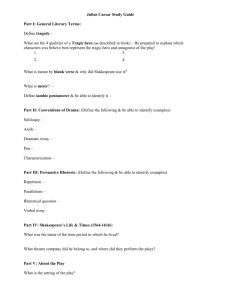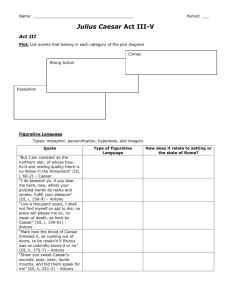Julius Caesar
advertisement
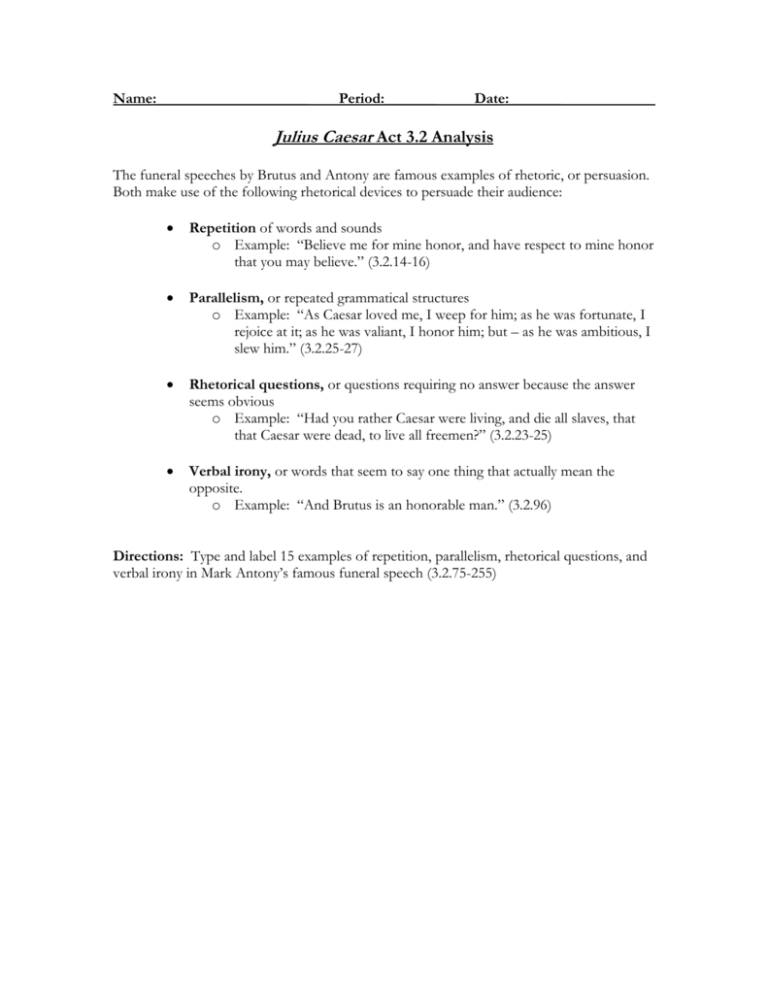
Name:____________________ Period:_______ Date:_______ Julius Caesar Act 3.2 Analysis The funeral speeches by Brutus and Antony are famous examples of rhetoric, or persuasion. Both make use of the following rhetorical devices to persuade their audience: Repetition of words and sounds o Example: “Believe me for mine honor, and have respect to mine honor that you may believe.” (3.2.14-16) Parallelism, or repeated grammatical structures o Example: “As Caesar loved me, I weep for him; as he was fortunate, I rejoice at it; as he was valiant, I honor him; but – as he was ambitious, I slew him.” (3.2.25-27) Rhetorical questions, or questions requiring no answer because the answer seems obvious o Example: “Had you rather Caesar were living, and die all slaves, that that Caesar were dead, to live all freemen?” (3.2.23-25) Verbal irony, or words that seem to say one thing that actually mean the opposite. o Example: “And Brutus is an honorable man.” (3.2.96) Directions: Type and label 15 examples of repetition, parallelism, rhetorical questions, and verbal irony in Mark Antony’s famous funeral speech (3.2.75-255)


